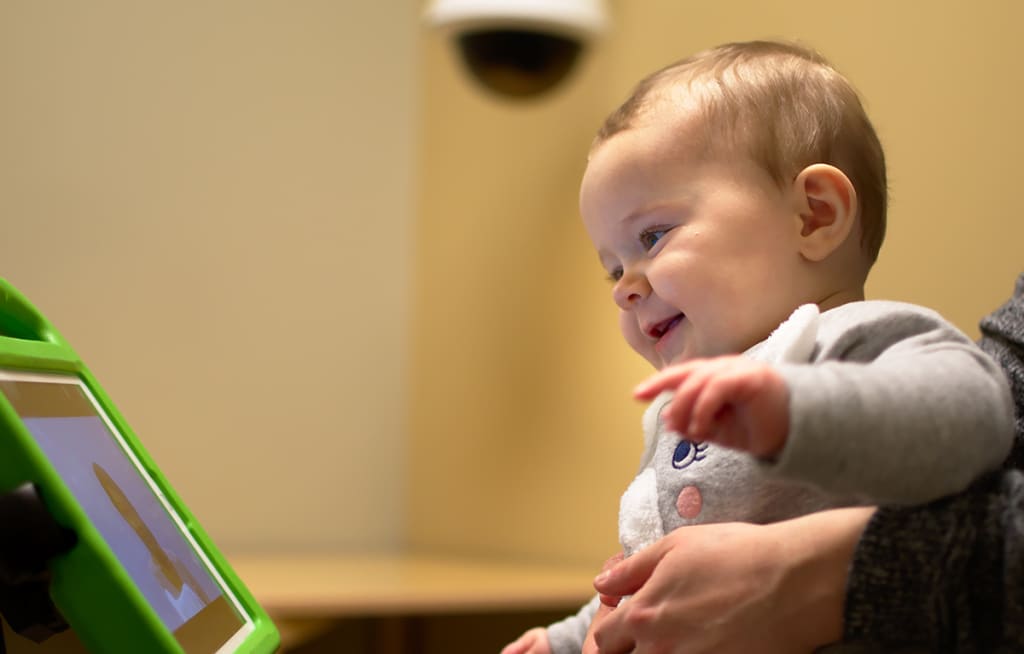Improved communication with those who have autism spectrum disorders thanks to a new app
The effectiveness of psychosocial therapies for ASD patients

Improved communication with those who have autism spectrum disorders thanks to a new app
Researchers from the UOC and Parc Taul Hospital developed TEAppAutism in collaboration with users and experts.
In order to help those who work with children or adults with autism spectrum disorder (ASD), researchers from the Universitat Oberta de Catalunya (UOC) and Parc Taul University Hospital have created a smartphone application.
The information was compiled using a careful study of the available research as well as the clinical expertise of experts who regularly care for patients with this neurodevelopmental disease. In charge of the UOC
eHealthLab, a research team from the UOC Faculty of Health Sciences, devised the new software, which was "created to help address the lack of tools for interacting and communicating with people with ASD," according to Marta Aymerich, the director of the eHealth Centre.
The TEAppAutism app, which is accessible on Android and iOS devices, contains a number of videos by certified specialists from Parc Taul that could be very helpful for friends, family, and teachers of persons with ASD. Additionally, these films can be a crucial resource for human resources, education, and healthcare.
professionals who assist or treat these people, as well as scientists conducting studies on the illness. Researchers from the UOC's Faculty of Health Sciences and Faculty of Computer Science, Multimedia, and Telecommunications were also participating in the AUTAPP project, under which the app was created. The fact that this application was developed in collaboration with end users, who provided guidance until we produced a tool that we anticipate would be highly beneficial, is what Aymerich claims gives it its greatest value.
The difficulties of doing research on psychosocial therapies
The study's authors conducted a systematic evaluation of recent ten-year-old scientific articles on psychosocial therapies for ASD. According to their findings, a sizable number of research may use some methodological refinement. In actuality, only 30 publications out of almost 400 that were evaluated met standards of quality that were comparable to those in other fields of health science.
According to Aymerich, "research has not been able to advance as quickly as it has in other fields, nor has it received the same amount of funding," because of the complexity and stigma associated with mental health disorders. The hurdles include that as well as issues finding participants and separating the impact of psychosocial therapies from other aspects.
Five Guidelines for advancing research
A number of methodology-related recommendations are provided by the UOC researchers to ensure thorough, representative, and reliable research.
One fundamental suggestion is to create groups that are more diverse in terms of gender and other social characteristics but more homogeneous in terms of cognitive capacity. Only men participated in some of the research that was the subject of the review.
Additionally, they advise utilizing well-blinded control groups and randomly chosen individuals who are not aware of whether or not they are receiving treatment. In order to evaluate which alternative may be more beneficial, they also suggest professionals think about the prospect of dividing participants into groups where clinical dynamics differ with regard to the duration and frequency of the same psychological intervention. They also advocate developing follow-up programs that last at least a year to determine whether a single therapy is sufficient or whether it needs to be administered repeatedly over time to ensure its effectiveness.
Finally, they urge researchers to develop a global consensus on the diagnostic procedures for ASD and the instruments used to monitor its development in clinical research settings. Aymerich asserts that "the use of standardized research methodologies will help to build international consensus around which diagnostic tools for clinical ASD research enable adequate cross-study comparisons."






Comments
There are no comments for this story
Be the first to respond and start the conversation.